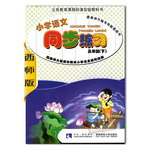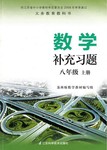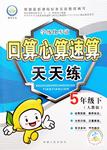
The older she grows, ________ the traditional food in her own country.
the more she becomes interested
the more interested she becomes
the more interested she becomes in
the interested she becomes more in
 同步练习河南大学出版社系列答案
同步练习河南大学出版社系列答案 同步练习西南师范大学出版社系列答案
同步练习西南师范大学出版社系列答案 补充习题江苏系列答案
补充习题江苏系列答案 学练快车道口算心算速算天天练系列答案
学练快车道口算心算速算天天练系列答案科目:高中英语 来源: 题型:阅读理解
American cities are similar to other cities around the world: American cities are changing, just as American society is changing. After World War Two, the population of most large American cities decreased; however, the population in many Sun Belt cities increase. Los Angeles and Houston are cities where population shifts (转移) to and from the city reflect the changing values of American society. In the late 1940s and early 1950s, city residents became weathier. They moved out of their apartments in the city to buy their own homes. They bought houses in the suburbs (郊区).
Now things are changing. The children of the people who left the cities in the 1950s are now adults. Many, unlike their parents, want to live in the cities. They continue to move to Sun Belt cities and older ones of the Northeast and Midwest. Many young professionals are moving back into the city. They prefer the city to the suburbs because their jobs are there; or they just enjoy the excitement and possiblilies that the city offers.
This population shift is bringing problems as well as benefits. Countless poor people must leave their apartments in the city because the owners want to sell the buildings or make apartments for sale instead of for rent. In the 1950s, many poor people did not have enough meney to move to the suburbs; now many of these same people do not have enough money to stay in the cities.
Only a few years ago, people thought that the older American cities were dying. Some city residents now see a bright, new future. Others see only problems and conflicts. One thing is sure:many dying cities are alive again.
What does the author think of cities all over the world?
A. They are alive. B. They are hopeless.
C. They are similar. D. They are different.
Why did American city residents want to live in the suburbs after World War Two?
A. Because older American cities were dying.
B. Because they were richer and needed more space.
C. Because cities contained the worst parts of society.
D. Because they could hardly afford to live in the city.
According to the 4th paragraph, a great many poor people in American cities .
A. are faced with housing problems B. are forced to move to the suburbs
C. want to sell their buildings D. need more money for daily expenses
We can conclude from the text that .
A. American cities are changing for the worse
B. people have different views on American cities
C. many people are now moving from American cities
D. the population is decreasing in older American cities
查看答案和解析>>
科目:高中英语 来源: 题型:阅读理解
When one looks back upon the fifteen hundred years that are the life span of the English language, he should be able to notice a number of significant truths. The history of our language has always been a history of constant change—at times a slow, almost imperceptible change, at other times a violent collision between two languages. Our language has always been a living growing organism, it has never been static. Another significant truth that emerges from such a study is that language at all times has been the possession not of one class or group but of many. At one extreme it has been the property of the common, ignorant folk, who have used it in the daily business of their living, much as they have used their animals or the kitchen pots and pans. At the other extreme it has been the treasure of those who have respected it as an instrument and a sign of civilization, and who have struggled by writing it down to give it some permanence, order, dignity, and if possible, a little beauty.
As we consider our changing language, we should note here two developments that are of special and immediate importance to us. One is that since the time of the Anglo-Saxons there has been an almost complete reversal of the different devices for showing the relationship of words in a sentence. Anglo-Saxon (old English) was a language of many inflections. Modern English has few inflections. We must now depend largely on word order and function words to convey the meanings that the older language did by means of changes in the forms of words. Function words, you should understand, are words such as prepositions, conjunctions, and a few others that are used primarily to show relationships among other words. A few inflections, however, have survived. And when some word inflections come into conflict with word order, there may be trouble for the users of the language, as we shall see later when we turn our attention to such maters as WHO or WHOM and ME or I. The second fact we must consider is that as language itself changes, our attitudes toward language forms change also. The eighteenth century, for example, produced from various sources a tendency to fix the language into patterns not always set in and grew, until at the present time there is a strong tendency to restudy and re-evaluate language practices in terms of the ways in which people speak and write.
1.In contrast to the earlier linguists, at present, more and more attention is paid to_________.
A. the standardization of the language
B. language practices in terms of current speech rather than standards or proper patterns
C. the improvement of the language than its history
D. the rules of the language usage
2.From the study we know that language is ________.
A. a possession of upper class.
B. a possession of lower class.
C. a possession of the whole society.
D. the only property of those who treasure it much.
3.Which of the following statements is NOT mentioned in the passage?
A. It is generally believed that the year 1500 can be set as the beginning of the Modern English.
B. Some other languages had great influence on the English language in its development.
C. The English language has been and still in a state of relatively constant change.
D. Many classes or groups have contributed to the development of the English language.
4.The author of these paragraphs is probably a(an) _________.
A. writer specially interested in English
B. person who pays much attention to people of lower classs
C. teacher who teaches the English language
D. expert in studying languages
5.Which of the following can be best used as the title of the passage?
A. The history of the English language.
B. Our changing attitude towards the English language.
C. Our changing language.
D. Some characteristics of modern English.
查看答案和解析>>
科目:高中英语 来源: 题型:阅读理解
Evelyn Glennie was the first lady of solo percussion in
“Early on I decided not to allow the 36 of others to stop me from becoming a musician. I grew up on a farm in northeast
“My 41 was to become a percussion soloist, even though there were none at that time. To perform, I 42 to hear music differently from others. I play in my stocking feet and can 43 the pitch of a note (音调高低) by the vibrations (振动). I feel through my body and through my 44 . My entire sound world exists by making use of almost every 45 that I have.
“I was 46 to be assessed as a musician, not as a deaf musician, and I applied to the famous Royal Academy of Music in
“After that, I established myself as the first full-time solo percussionist. I 51 and arranged a lot of musical compositions since 52 had been written specially for solo percussionists.
“I have been a soloist for over ten years. 53 the doctor thought a was totally deaf, it didn’t 54 that my passion couldn’t be realized. I would encourage people not to allow themselves to be 55 by others. Follow your passion; follow your heart, they will lead you to the place you want to go.”
36. A. conditions B. opinions C. actions D. re commendations
37. A. enjoying B. choosing C. taking D. giving
38. A. sight B. hearing C. touch D. taste
39. A. evidence B. result C. excuse D. Cause
40. A. left B. excited C. accompanied D. disappointed
41. A. purpose B. decision C. promise D. goal
42. A. turned B. learned C. used D. ought
43. A. tell B. see C. hear D. smell
44. A. arefulness B. movement C. imagination D. experience
45. A. sense B. effort C. feeling D. idea
46. A. dissatisfied B. astonished C. determined D discouraged
47. A. Done B. accepted C. advised D. admitted
48. A. supported B. followed C. required D. opposed
49. A. usually B. finally C. possibly D. hopefully
50. A. study B. research C. graduate D. progress
51. A. wrote B. translated C. copied D. read
52. A. enough B. some C. many D. few
53. A. However B. Although C. When D. Since
54. A. mean B. seem C. Conclude D. say
55. A. Directed B. guided C. taught D. limited
查看答案和解析>>
科目:高中英语 来源:2014届浙江省绍兴市高三上学期期中考试英语试卷(解析版) 题型:阅读理解
On a number of drives throughout my childhood, my mother would suddenly pull over the car to examine a flower by the side of the road or rescue a beetle from tragedy while I, in my late teens and early twenties, sat impatiently in the car.
Though Mother’s Day follows Earth Day, for me, they have always been related to each other. My mom has been “green” since she became concerned about the environment. Part of this habit was born of thrift (节俭). Like her mother and her grandmother before her, mom saves glass jars, empty cheese containers and reuses her plastic bags.
Mom creates a kind of harmonious relationship with wildlife in her yard. She knows to pick the apples on her trees a little early to avoid the bears and that if she leaves the bird feeders(给食器) out at night, it is likely that they will be knocked down by a family of raccoons (浣熊). Spiders that make their way into the house and are caught in juice glasses will be set loose in the garden.
I try to teach my children that looking out for the environment starts with being aware of the environment. On busy streets, we look for dandelions (蒲公英) to fly in the wind; we say hello to neighborhood cats and pick up plastic cups and paper bags. This teaching comes easily, I realize, because I was taught so well by example. Mom didn’t need to lecture; she didn’t need to beat a drum to change the world. She simply slowed down enough to enjoy living in it and with that joy came mercy and an instinct for protection.
I am slowing down and it isn’t because of the weight of my nearly forty years on the planet, it is out of my concern for the planet itself. I’ve begun to save glass jars and reuse packing envelopes. I pause in my daily tasks to watch the squirrels race each other in the trees above my house.
Last summer, in the company of my son and daughter, I planted tomatoes in my yard. With the heat of August around me, I ate the first while sitting on my low wall with dirt on my hands. Warm from the sun, it burst on my tongue with a sweetness I immediately wanted to share with my mom.
1.. Why does the author say Earth Day is connected with Mother’s Day?
A. Because Mother’s Day falls shortly after Earth Day.
B. To stress that all the older women in her family are environmentalists.
C. To stress how much her mother cares about the environment.
D. Because her mother shows her how to be friendly to nature on Mother’s Day.
2.. Which of the following is NOT related to Mom’s “green life”?
A. Rescuing a beetle from a certain tragedy.
B. Saving glass jars, empty cheese containers.
C. Setting a caught spider free in the garden
D. Picking dandelions on busy streets.
3.. We can infer from the article that ______.
A. the author realizes that she should teach her children by example as well
B. the author’s mother knows how to get rid of the wildlife in her yard
C. the author believes that only by learning to slow down can we enjoy life
D. the author’s mother used to lecture her to protect the environment.
4.. What can be learned from the last paragraph?
A. Tomatoes make the author think of her mother.
B. The author likes eating tomatoes planted by herself.
C. Planting tomatoes is a way of protecting environment.
D. The author really appreciates her mother’s teaching.
5.. The writer’s attitude towards her mom’s behavior changed in the order of ______.
A. understanding — critical — approving
B. approving — doubtful — negative
C. negative — understanding — approving
D. doubtful— critical— positive
查看答案和解析>>
科目:高中英语 来源:2015届黑龙江省高一上学期期末考试英语试卷(解析版) 题型:阅读理解
My friend Robert started a new job this week and he’s been in the training class for two days. The employer has a very strict dress code—dark blue shirts and pants.
On the first day, an older gentleman in his class did not have the proper clothes and he was strictly told that he would be fired if he didn’t have the right clothes the next day. He explained, “Sir, I had not been told about this. Because of my larger size, it’s sometimes difficult to find the right clothing for a price I can afford.”
Last night, Robert and I decided that this old man shouldn’t lose the chance of work simply because he couldn’t afford the clothes. I had some cash on hand and Robert took it with him this morning just in case it was needed.
When training started this morning, the trainer was ready to fire the older gentleman. “You have 10 minutes to be in proper clothes,” he was told. At this point, Robert spoke up and asked if he could have 10 minutes to get him the clothes. He then ran out to the store and bought the proper-sized pants and a shirt; he returned with both and gave them to the older man.
The older gentleman began to cry and told him that he couldn’t accept such a gift from a stranger. Robert told him he had to because he had lost the receipt(收据) and couldn’t return them—a little white lie. The pants were a perfect fit, the shirt was a bit tight but he was able to keep his job.
“My wife and I tried to gather together some money last night, but we didn’t have enough to buy the clothes,” he told Robert. “It’s unbelievable to me that anybody would do such a thing for only knowing me a day!”
More unbelievable is how good it has made Robert and me feel to do this.
1.If the older man did not have the proper clothes, he would _____
A.be punished B.be offered another job
C.put off the training class D.lose his job
2.The money which was paid for the clothes belonged to _____
A.the trainer B.the older man
C.the writer D.Robert
3.How did Robert persuade the older man to accept the clothes?
A.He told the older man that he would lose his job if he did not take them.
B.He told a lie that the clothes didn’t fit himself.
C.He told the older man that he could save money and return it later.
D.He told the older man that he had no way to send them back.
4.What might be the best title for the passage?
A.Proper clothes for a stranger B.Fight against strict rules
C.A strange employer D.An unbelievable thing
查看答案和解析>>
湖北省互联网违法和不良信息举报平台 | 网上有害信息举报专区 | 电信诈骗举报专区 | 涉历史虚无主义有害信息举报专区 | 涉企侵权举报专区
违法和不良信息举报电话:027-86699610 举报邮箱:58377363@163.com